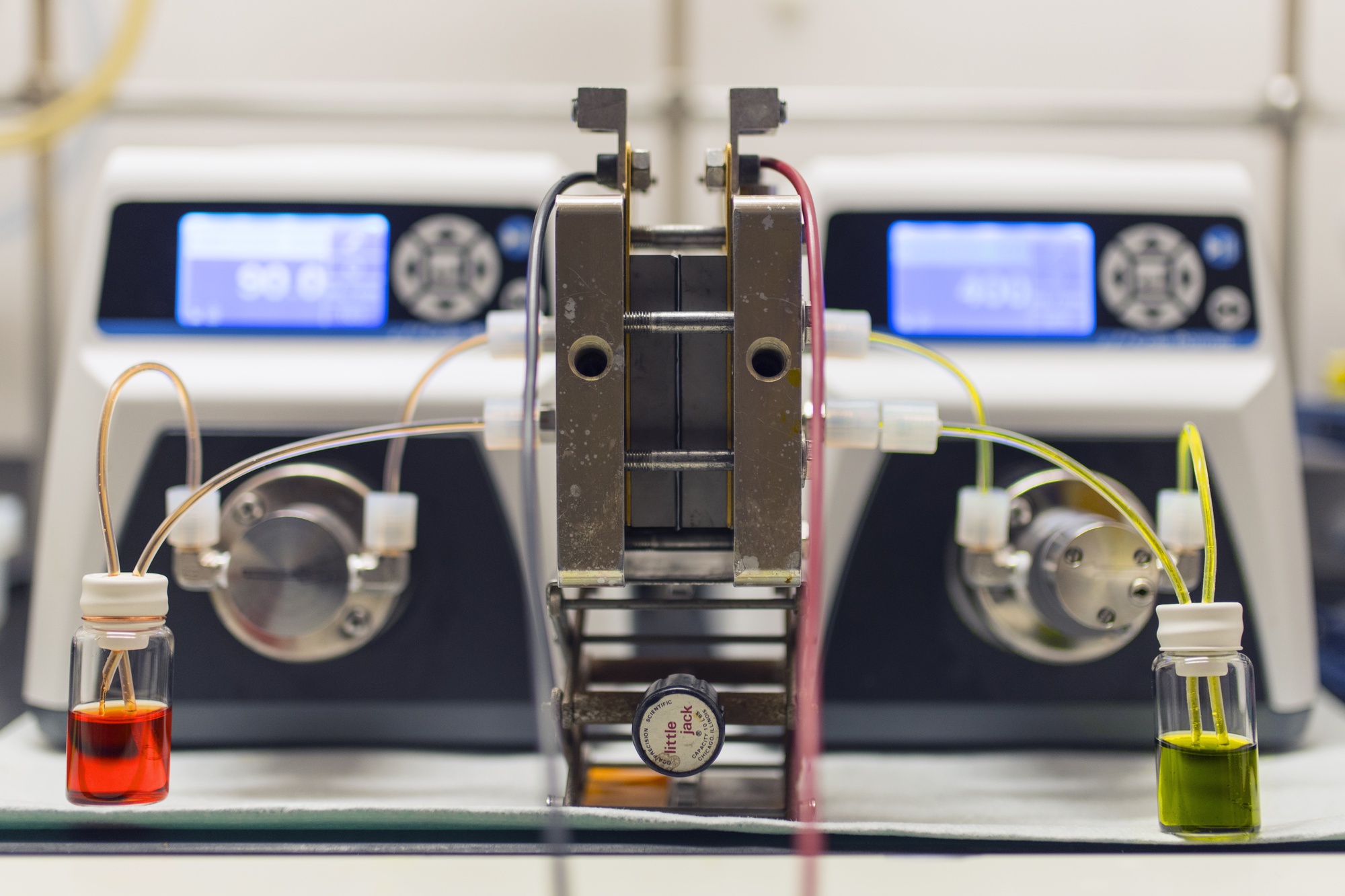
News
Summers Will Not Finish Semester of Teaching as Harvard Investigates Epstein Ties

News
Harvard College Students Report Favoring Divestment from Israel in HUA Survey

News
‘He Should Resign’: Harvard Undergrads Take Hard Line Against Summers Over Epstein Scandal

News
Harvard To Launch New Investigation Into Epstein’s Ties to Summers, Other University Affiliates

News
Harvard Students To Vote on Divestment From Israel in Inaugural HUA Election Survey
Harvard Researchers Hail Eco-Friendly Battery

A team of researchers from Harvard have developed a breakthrough in battery technology that they say can store renewable energy in a non-toxic, non-flammable, safe, and low cost way.
Batteries of this nature are paired with the collection of renewable resources “to store massive amounts of energy sources from solar and wind so that we can reuse it when the sun goes away, or the wind stops blowing," according to Kaixiang Lin, a member of the research team and a Harvard graduate student.

Many members of the research team believe that the development of a cost-effective, environmentally friendly flow battery can have significant implications in the energy and resource issues the future.
"This is the greatest problem facing humanity this century," said Professor Michael J. Aziz, the project’s principal investigator. "Any efforts to mitigate this problem could be very well appreciated."
According to Qing Chen, a postdoctoral fellow in Materials Science and Mechanical Engineering who is also a member of the research team, the improved battery is already on par with its less green alternatives, but the team plans on continuing to improve its efficiency.
With the ability to store energy, people will not need constant access to a power grid, which cuts down on cost, and allows for local production of energy, said Lin.
According to Aziz, one-fifth of the world’s population does not have access to electrical grids on a day-to-day basis. This technology could revolutionize their energy accessibility, while remaining eco-friendly.
The team’s principal goal is to make alternative renewable sources less expensive than non-renewable energy, explained Roy G. Gordon, one of the lead researchers of the battery’s chemistry and a professor of chemistry and materials science at Harvard. "Then we'll have a real stampede to clean energy sources, when it is actually less expensive.”
In three years, the research team hopes to have fully developed a commercially ready battery suitable for single family homes.
They have sufficient funding for now, but after the spring of 2017, Aziz said he is unsure who will provide capital. They will seek funding to sustain research through at least 2020.
Want to keep up with breaking news? Subscribe to our email newsletter.
